Brexit Impact on Property Investment
07-02-2016
PropertyInvesting.net team
Brexit: The country has voted for a Brexit, by 52% vs 48% and this has created massive uncertainty in the UK economy and political stability. We thought it would be close – a 50/50 call (refer to our Newsletter mid-June). The Brexit vote has triggered a long term period of instability that is not likely to reduce significantly in the next few years.
Immediate Impact: The immediate impact of the EU Referendum result was that s hares dropped ~6% and Sterling devalued against the dollar by about 8%. David Cameron resigned. The Bank of England has since started stimulus measures to prop up the UK banks and announced the next interest rate direction is likely to be down. This then stimulated the FTSE100 stock index to rise by 8% to a new 2 year high. Clearly investors think the low interest rates and monetary stimulus will be good for business incomes-dividends and could prevent a severe recession. The Sterling devaluation will hopefully stimulate exports through to end 2016.
hares dropped ~6% and Sterling devalued against the dollar by about 8%. David Cameron resigned. The Bank of England has since started stimulus measures to prop up the UK banks and announced the next interest rate direction is likely to be down. This then stimulated the FTSE100 stock index to rise by 8% to a new 2 year high. Clearly investors think the low interest rates and monetary stimulus will be good for business incomes-dividends and could prevent a severe recession. The Sterling devaluation will hopefully stimulate exports through to end 2016.
Property Prices: Nationwide announced that property prices rose 0.2% in July – but this really does not take into consideration the last week of June. Early reports from London suggest asking prices may have dropped by 10-15% as business confidence evaporated, with the threat of financial services jobs going overseas.
The first definitive early warning sign of a property price crash will come Monday 18 July at 7am with the publication of the Rightmove House Price Indicator report – this measures asking prices in the previous month (post Brexit result). We expect a sharp fall – particularly in central London locations. Then other house price indicators by Nationwide and Halifax are likely to show property prices sta rting to fall by end July to early August.
rting to fall by end July to early August.
Bond Rate Drop: A key piece of good news is that UK bond rates have dropped, and interest rates are likely to drop as well in the short-medium term – this should make mortgages cheaper for a while. However, the problem lies when import costs rise and this starts to feed through into inflation by the end of 2016. If the Bank of England then raises interest rates to control inflation – this could trigger a property price crash as mortgage rates rise.
Central Scenario: There is a central – albeit fairly optimistic scenario – that a deflationary period of uncertainty is then matched with an inflationary Sterling decline, leading to “stagflation” – say general prices rising by 5% per annum but GDP growth moving around the 0-1% range, after a short recession. It’s difficult to prediction what would happen to house prices because they are related to:
• Interest rates and hence mortgage rates
• Employment-unemployment
• Housing supply – new builds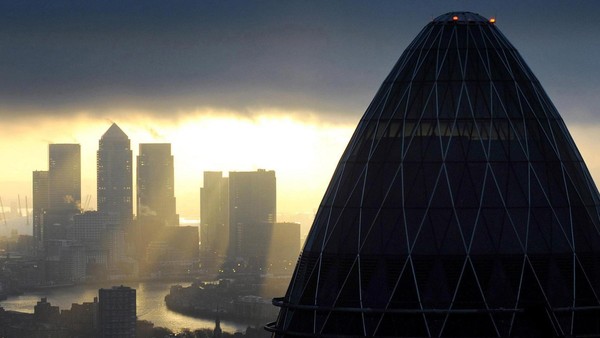
• Overall confidence of people wanting to purchase or rent properties
Depression: If a severe recession hits the UK – and we are probably in one already – then unemployment goes up – even if no new homes are being built and interest rates stay low, there could still be a house price crash particularly in London which is so dependent on investor confidence and sales to wealthy overseas professionals. For now, we just need to wait and see.
Under Supply of Property: One thing is for certain though, the population of the UK is rising by around 520,000 a year and only 140,000 homes are being built. Now we have the Brexit, we expect the UK to be less of an attractive place for people to move to – and some people may leave. If we assume that the population then rises by only 420,000 a year (with net migration dropping from its 350,000 peak to say 250,000) – we can also expect the amount of home building to drop with all the uncertainty and potential reduction in demand. Hence may be 115,000 new homes would be build a year. You can see there is still a massive under supply of new homes, particularly as many younger people get into the 30s and want to purchase a property. Despite this under supply, prices can still drop of course if the economy and employment is doing badly. But we can conclude a Brexit will make no significant di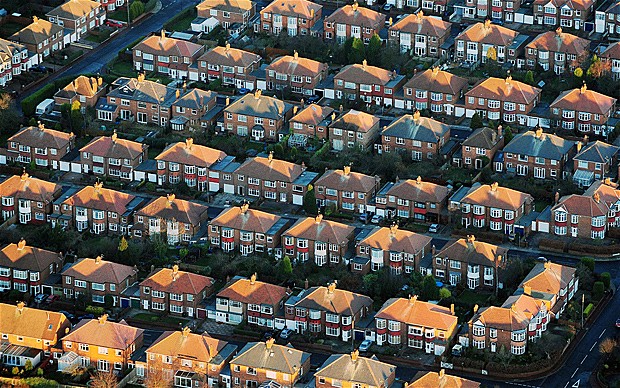 fference to the housing supply-demand situation apart from zapping the economy and confidence in the next five years.
fference to the housing supply-demand situation apart from zapping the economy and confidence in the next five years.
Net Migration Hardly Changing: However, it is an equally likely outcome that inward net migration plateaus at 350,000 a year and the population continues to boom at a rate of 520,000 additional people a year henceforth – despite an economic recession. The Brexit may simply put a lid on any “additional” increases over and over the already high net migration levels.
Punitive Buy-to-Let Landlord Taxes Cause Rental Crisis: The punitive 3% tax increase on buy-to-let landlord purchases and second homes, along with the ridiculous tax on landlord mortgage payments, will likely lead to far reduced investment in rental property and with all the uncertainties – more people will want to rent, less buy and this will create a rental crisis in London and many major cities. We think rents will rise sharply eve n if there is a recession, simply because of lack of supply of rental properties. Chancellor Osbourne always knew this was a risk, and Brexit has probably made it even worse. This taxes ludicrous taxes will have unintended consequences – driving rents higher and precipitating a rental crisis.
n if there is a recession, simply because of lack of supply of rental properties. Chancellor Osbourne always knew this was a risk, and Brexit has probably made it even worse. This taxes ludicrous taxes will have unintended consequences – driving rents higher and precipitating a rental crisis.
Hold Off From Investment: As we described in the mid-June Newsletter, we advised property investors to stop making any investments in the UK – hold off – until the landscape is clearer and we still hold that view – particularly after the punitive tax increase – now we have Brexit to worry about. The nightmare Brexit scenario has manifested itself. David Cameron has resigned. The Tories are scrambling for new leadership. And the political landscape has changed dramatically since June 23. Longer term, the overall European Project may disintegrate because:
• The Netherlands may have a Referendum – Nexit
• France may have a Referendum – Frexit
• Austria may have a Referendum after their courts overruled a Presidential election result 1 July – Aexit
• Continued concerns about free flow or people into the EU and within the EU
Scottish Referendum: It’s now highly likely the Scots will have a second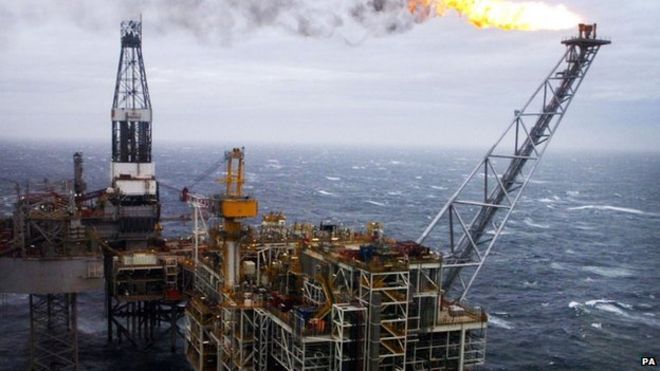 Referendum – for full devolution, particularly if they get assurances from Junker/Must that they can stay within the EU. This very tricky legislation could backfire for Nicola Surgeon – in that she may get devolution, but be unable to re-enter the EU and find a massive budgetary hole to fill – leading to many years of Scottish depression and deflation. Her case has been severely hampered by declining oil production in the North Sea, a very low oil price and declining Scottish manufacturing industry. In addition, Scotland has only a slowly increasing population, many aging people and weak agriculture meaning most food is imported. We cannot see how devolution would work economically for Scotland – and we think Nicola Surgeon knows this – and is of course cautious because of this. It’s probable though that a second referendum would succeed for Surgeon – but she should be careful what she wishes for. It could lead to a long term Scottish depression.
Referendum – for full devolution, particularly if they get assurances from Junker/Must that they can stay within the EU. This very tricky legislation could backfire for Nicola Surgeon – in that she may get devolution, but be unable to re-enter the EU and find a massive budgetary hole to fill – leading to many years of Scottish depression and deflation. Her case has been severely hampered by declining oil production in the North Sea, a very low oil price and declining Scottish manufacturing industry. In addition, Scotland has only a slowly increasing population, many aging people and weak agriculture meaning most food is imported. We cannot see how devolution would work economically for Scotland – and we think Nicola Surgeon knows this – and is of course cautious because of this. It’s probable though that a second referendum would succeed for Surgeon – but she should be careful what she wishes for. It could lead to a long term Scottish depression.
Sterling Devaluation: One thing is for certain though – Sterling will continue to decline in value because of:
• Its decline against the US Dollar and Euro in the short term
• Sterling currency printing – devaluation/easing to stave off banks collapsing
Assuming general inflation of 3-5% in the next ten years and a Sterling currency decline, zero interest rates in the short-medium term - the value of savings will be further destroyed. Cash in a te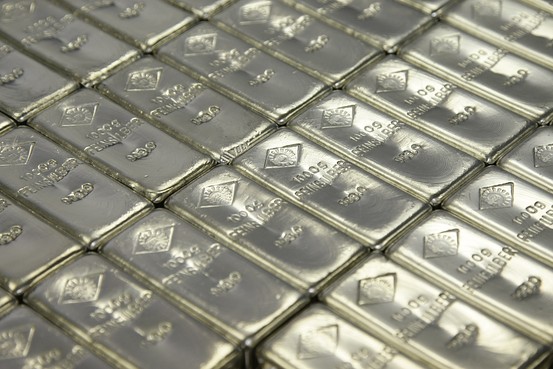 n year time frame will lose half its value.
n year time frame will lose half its value.
Silver and Gold: For the last five years – we have been singing the praises of gold and silver as the only true store of wealth – particularly in periods of high inflation or deflation. You may have noticed silver bottomed out at around $11.20/Troy Ounce Nov 2015 and it has since risen to $18.75 on 1 July 2016. Sliver is the only thing we can think of that is lower in price than in 1980 (when it peaked at $55/Troy ounce). We really think silver is the bargain of the century – even though it has risen from $11.20 recently. It could quite easily double or triple from its current level in the next few years. We also like gold – a true store of value – “real money”. At $1385/Troy ounce – we think it’s good value and could quite easily rise well beyond $2000/Troy ounce, particularly if the European Union starts to break up as we expect the next ten years.Of course as a hedge against further Sterling devaluations, gold and silver priced in dollars also has its attractions. Of course silver in pound Sterling terms has almost doubled in the last six months.
Silver’s Rational – The Devils Metal: For anyone doubting the rational for silver, just consider this. On the surface of the earth, if yo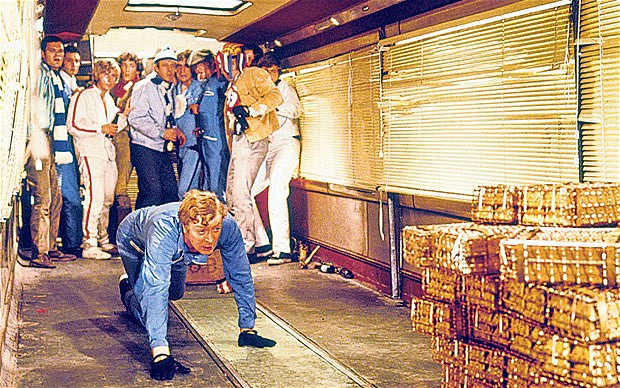 u take the world’s population of 7 billion and divide it by the amount of silver – that’s 0.5 billion Troy ounces, you get one silver coin (or 1 Troy ounce, costing $19) for every fourteen people. That means if you spend say $100 on five coins, you will have the equivalent of 70 people’s worth of silver. Now remember that silver is used in mobile phone, medical sterilization, semi-conductors-electronics and numerous other manufacturing processes, you can start to understand how $19 for a silver coin is a bargain and the price could skyrocket any time. Of course silver is notoriously volatile, they call it the devils metal – with many shorts and small likely manipulated sliver market, but over the medium term, we think silver will break out into a giant spike and the trick will be to sell out near the top without getting too greedy – always difficult of course as humans tend to follow the herd instinct, and get in too late and get out too late. Its best to buy the physical metal and store it in a secure bank vault. It’s best to avoid buying Silver ETFs – since they are not properly backed by the actual metal.
u take the world’s population of 7 billion and divide it by the amount of silver – that’s 0.5 billion Troy ounces, you get one silver coin (or 1 Troy ounce, costing $19) for every fourteen people. That means if you spend say $100 on five coins, you will have the equivalent of 70 people’s worth of silver. Now remember that silver is used in mobile phone, medical sterilization, semi-conductors-electronics and numerous other manufacturing processes, you can start to understand how $19 for a silver coin is a bargain and the price could skyrocket any time. Of course silver is notoriously volatile, they call it the devils metal – with many shorts and small likely manipulated sliver market, but over the medium term, we think silver will break out into a giant spike and the trick will be to sell out near the top without getting too greedy – always difficult of course as humans tend to follow the herd instinct, and get in too late and get out too late. Its best to buy the physical metal and store it in a secure bank vault. It’s best to avoid buying Silver ETFs – since they are not properly backed by the actual metal.
Property Trends: Back on property, we re-iterate our long term view that all areas close to expanding business and population centres are likely to see property prices rising. In rural and older industrial areas in the north and west, we see prices being depressed as lack of investment and slower population growth with aging populations take their toll. The Brexit will amplify this trend. For example, Swansea University has just finished building a new campus – at a cost of £450 million funded through EU mon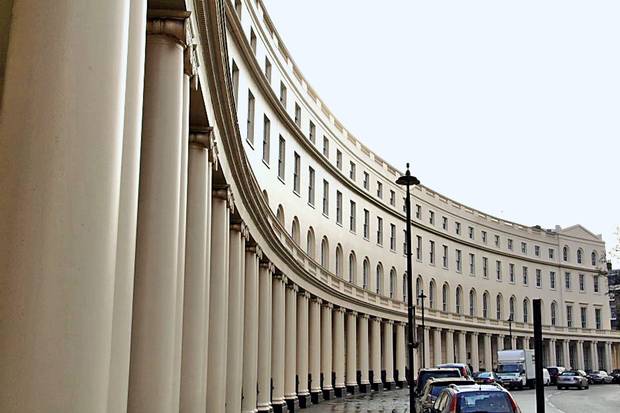 ey. But the Welsh overall voted “out” – and it’s difficult to see large funding injections into rural areas like Swansea once we Brexit. It’s interesting how the rural areas and northern areas were the regions that voted Brexit – these are the areas that are likely to be hit hardest economically by a Brexit. The Brexit will send property prices down in places like Sunderland, Swansea, Barrow, Llandudno. Prices in prime Central London will also probably drop sharply initially, but peripheral London and SE England prices may actually stay fairly stable or even continue to rise. Rural areas will see their economies slow drastically into a depression in the next few years – particularly areas not exposed to national and international tourism (e.g. mid Wales, NE England).
ey. But the Welsh overall voted “out” – and it’s difficult to see large funding injections into rural areas like Swansea once we Brexit. It’s interesting how the rural areas and northern areas were the regions that voted Brexit – these are the areas that are likely to be hit hardest economically by a Brexit. The Brexit will send property prices down in places like Sunderland, Swansea, Barrow, Llandudno. Prices in prime Central London will also probably drop sharply initially, but peripheral London and SE England prices may actually stay fairly stable or even continue to rise. Rural areas will see their economies slow drastically into a depression in the next few years – particularly areas not exposed to national and international tourism (e.g. mid Wales, NE England).
Ultra-Rich Attractions - Cheap Money: In the medium term, note that London will remain an exciting and attractive place for international wealthy people to live, and Sterling’s decline will make prime London property 20% cheaper for overseas buyers. Add to this another bout of money printing – free money for the super-rich – so don’t be surprised to see prime London property prices rising sharply by end 2017 as this money feeds through to the ultra-rich cash buyers once more.
We wish we could be more positive about Brexit, but just as we predicted – it would manifest itself into a crisis that will be ongoing for years. The chance of a second referendum is almost zero, the chance of a U-turn on Brexit is almost zero and the only questions are what type of deal we get and how long the divorce takes. Most non amicable divorces destroy economic value and this one is no different.
If you have any queries please contact us on enquiries@propertyinvesting.net

